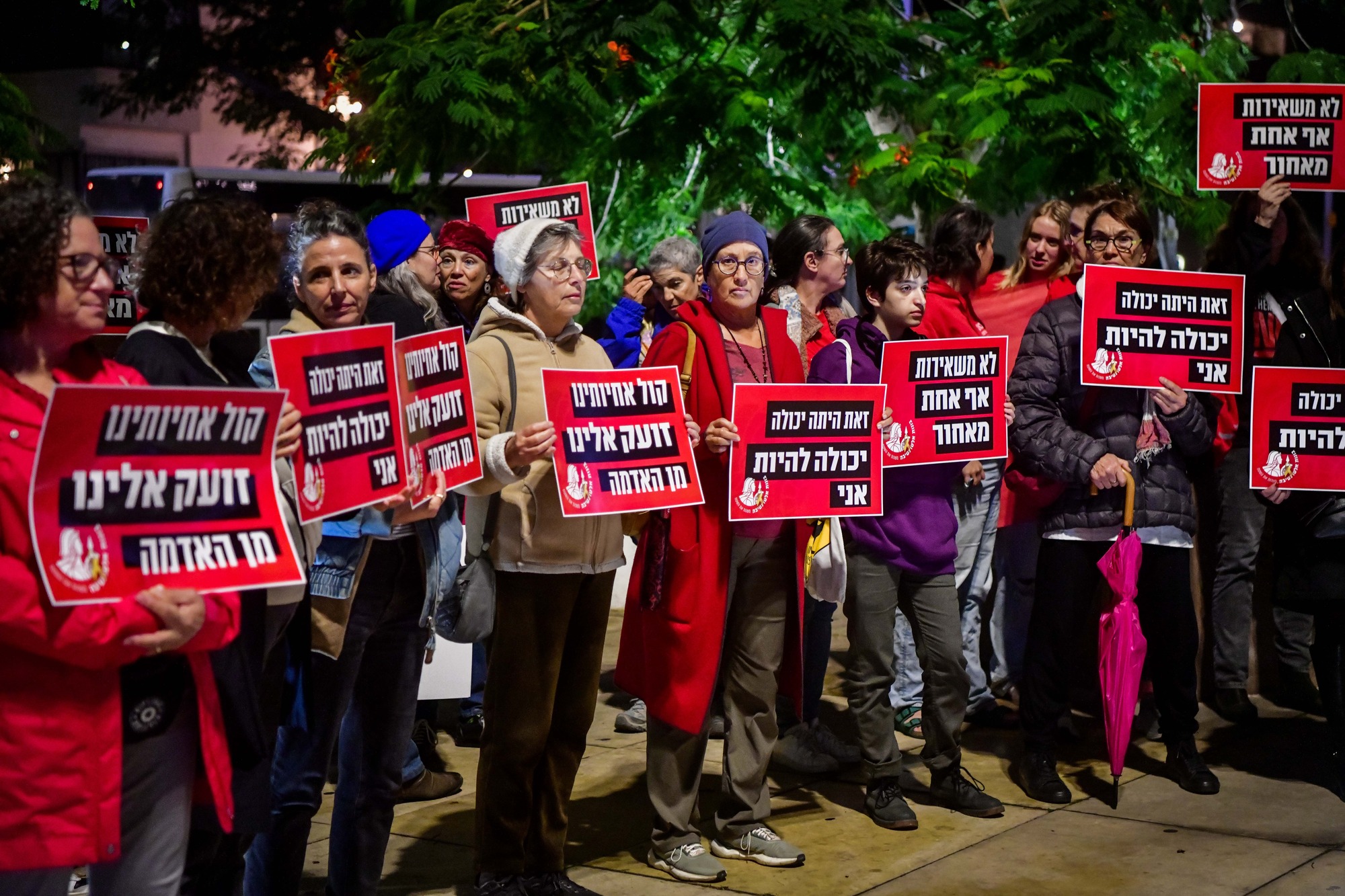Marking International Day for the Elimination of Violence against Women in the Shadow of the Ongoing War
Marking the International Day for the Elimination of Violence against Women in the shadow of war, women in Israel face increasingly precarious circumstances as the destabilization of society alongside an increase in weapons distribution threaten their safety. To counter this trend, government policy must recognize this growing threat and place the issue of gender equality among the top national priorities.

Photo by; Avashalom Sasson/Flash90
A year ago, on the International Day for the Elimination of Violence against Women, Israelis were shocked by the murder, sexual violence and kidnapping of women, children and men by Hamas. A year has passed, many of these women and men are still in Hamas captivity in Gaza, and no one has yet been brought to justice for these acts.
Even now, thousands of Israeli men and women are still displaced from their homes, a fact that increases the danger for women, as evidenced by studies indicating an increase in violence against women in emergency situations. Further evidence of this is the increase in the number of women murdered under gender-based violence since the beginning of the year. According to data from Israel Women's Network, 31 women were murdered in 2024 (compared to 29 women in 2023 – which was a record year).
The data collected by the Ministry of Welfare and Social Affairs also show that the reality of war has a direct and serious impact on violence against women. According to the data, there has been a dramatic increase in the number of requests submitted to the ministry for a risk assessment for men who wanted to carry weapons, and about whom there is concern around their cycle of violence (only 5 requests in the entire year 2023, compared to 90 requests this year).
At first glance, one might actually be encouraged by the approximately 20% decrease in the number of women's calls to the Ministry of Welfare and Social Affairs' emergency hotline to report domestic violence, compared to last year. But the knowledge accumulated from past wars in Israel and wars around the world suggest this is not cause for optimism: as long as there is no certainty as to how the ongoing war will impact their lives, women may not seek assistance, even if they experience violence. Furthermore, a surge of violence may occur after the war, based on the assessment that the economic and mental distress will only increase.
To this reality should be added the fact that even if various government ministries are committed to the issue, it is not at the top of the government's priority list, as is expressed, for example, in the intention to cut the Ministry of Welfare and Social Affairs' budget. It is also impossible to ignore the fact that the representation of women in senior government positions is at an unprecedented low level. The fact that only one woman currently serves as the executive of a government ministry (and only on an interim basis), compared to 10 women in the previous government, is clear evidence of the lack of commitment to gender equality. Women are also completely absent from the negotiating team for the return of the men and women held hostage, despite the obligation of women to be represented on this team being stipulated by law.
It is therefore not surprising that Israel is ranked 91st in the Global Gender Gap Index for 2024, as published by the World Economic Forum (an unfortunate decline from the previously unwelcomed 83rd place).
Indeed, studies clearly demonstrate that women are more likely to advance legislation that addresses gender equality. The less they are represented, the fewer such bills there will be, and the less attention is paid to the implications for women of policies on security, welfare, education and the prevention of violence against women. Also, considering the fact that women tend to appoint more women, their absence from senior positions leads to an even more significant deficit.
To this we must add efforts by the government to undermine Israel's democratic institutions, which may affect the protection of women from discrimination and violence. For example, the violation of the independence of the legal system and the frequent threats to dismiss the Attorney General may undermine the effective avenues that women have to fight discrimination and exclusion, not to mention the unique gender characteristics that can be identified in the attacks on the Attorney General.
To improve the situation and ensure it does not get worse, several key actions should be taken: every effort should be made to bring home all women and men held hostage in Gaza; women should be integrated into the senior government positions; key government decisions should include a gender analysis on the implications on government policies; budgets to bodies the support women facing violence should be increased instead of reduced; efforts to undermine the courts and the Attorney General should be halted; and the issue of gender equality should be among the top national priorities.
